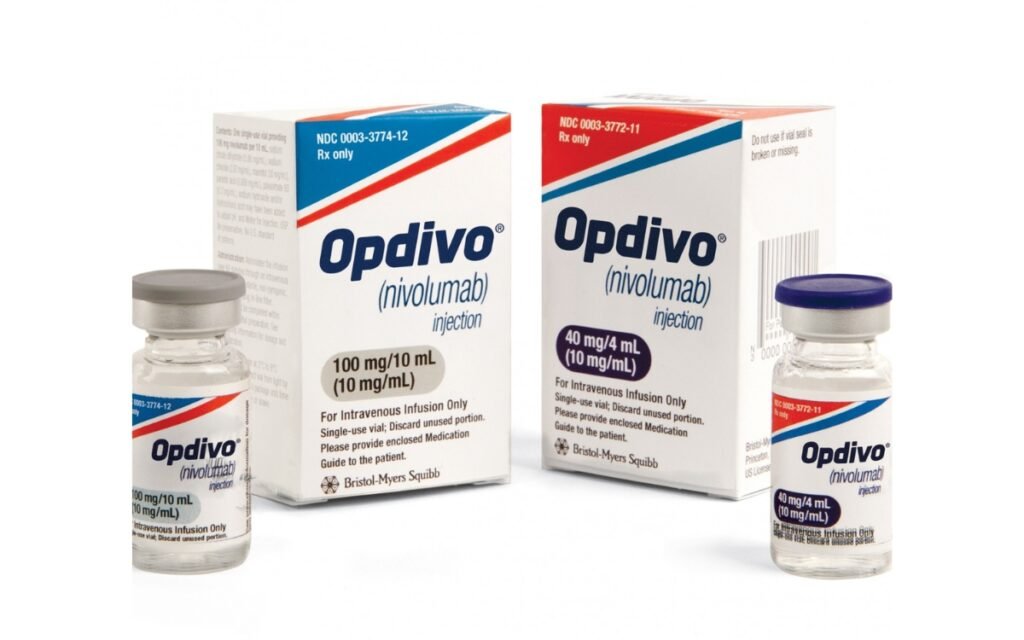ESMO 2023: LBA7
Bladder cancer has presented a unique challenge for immunotherapies, with Bristol Myers Squibb’s Opdivo making strides, but its success has been somewhat overshadowed by competing data.
The addition of Opdivo to cisplatin-based chemotherapy has shown a promising reduction in the risk of death for previously untreated bladder cancer, a notable 22% decrease. These findings were unveiled at the annual meeting of the European Society for Medical Oncology, emphasizing Opdivo’s potential to extend the median survival period for patients by 2.8 months, reaching 21.7 months when used alongside chemotherapy, in comparison to chemotherapy alone.
This data stems from an analysis of patients eligible for cisplatin in the phase 3 CheckMate-901 trial, which includes both cisplatin-eligible and cisplatin-ineligible patients, though the latter’s results are pending. Should Opdivo gain approval, it will enter the arena of competition with Merck KGaA’s Bavencio, which has received approval as a first-line maintenance therapy for patients who have not progressed following initial platinum-based chemotherapy. However, a formidable challenger may emerge in the form of the combination therapy, including the PD-1 inhibitor Keytruda and the antibody-drug conjugate Padcev, a collaboration between Astellas, Seagen, and Merck & Co.
Bavencio had gained its first-line maintenance approval in mid-2020 based on the phase 3 Javelin Bladder 100 study, which demonstrated a 31% decrease in the risk of death compared to best supportive care.
It’s important to note that a direct comparison between the Javelin trial and Opdivo’s CheckMate-901 is challenging. The Bavencio trial focused on patients who responded to an initial round of cisplatin or carboplatin treatment, while Opdivo was combined with cisplatin from the outset in the BMS study.
Bristol Myers’ Chief Medical Officer, Dr. Samit Hirawat, defended Opdivo’s use upfront, emphasizing the significance of a therapy that offers an overall survival benefit when administered as a first-line treatment.
Meanwhile, Merck & Co. had previously explored the addition of Keytruda to first-line bladder cancer chemotherapy. The Keynote-361 trial, however, failed to demonstrate a statistically significant advantage for this combination, resulting in the FDA limiting Keytruda’s first-line bladder cancer use to patients ineligible for platinum-containing chemotherapy.
At ESMO 2023, Merck and its partners presented encouraging data for Keytruda in combination with Padcev. This combination significantly extended overall survival, reducing the risk of death by 53% compared to platinum-based chemotherapy, as evidenced by the closely-watched EV-302 trial. The trial included both cisplatin-eligible and carboplatin-eligible patients, whereas Opdivo’s current data pertain exclusively to the cisplatin-eligible population. In a subgroup analysis of cisplatin-eligible patients in EV-302, the Padcev-Keytruda combination outperformed the Opdivo-chemo regimen by reducing the risk of death by 47%. The magnitude of improvement was more than double that of Opdivo-chemo.
Padcev, as an antibody-drug conjugate, offers a more targeted approach to tackling tumors compared to traditional chemotherapy.
While Dr. Hirawat suggested that Opdivo in combination with chemotherapy still holds relevance, he acknowledged the potential for chemo-sparing regimens in the future, provided they prove to be safe, effective, and transformative. However, the consensus at ESMO 2023 appears to lean toward Padcev and Keytruda as the preferred first-line regimen in urothelial carcinoma, as endorsed by Dr. Andrea Apolo from the National Cancer Institute, eliciting enthusiastic applause from the audience.
Conclusion
In the realm of bladder cancer immunotherapies, Opdivo by Bristol Myers Squibb shows promise when combined with cisplatin-based chemotherapy, potentially extending survival. However, it faces competition from Merck KGaA’s Bavencio and a potent combination therapy involving Keytruda and Padcev. Opdivo’s upfront use is being defended for its potential overall survival benefit, while Keytruda and Padcev exhibit significant advantages in certain patient subgroups. The landscape for bladder cancer treatment is evolving with multiple options, each with its strengths and considerations.





























